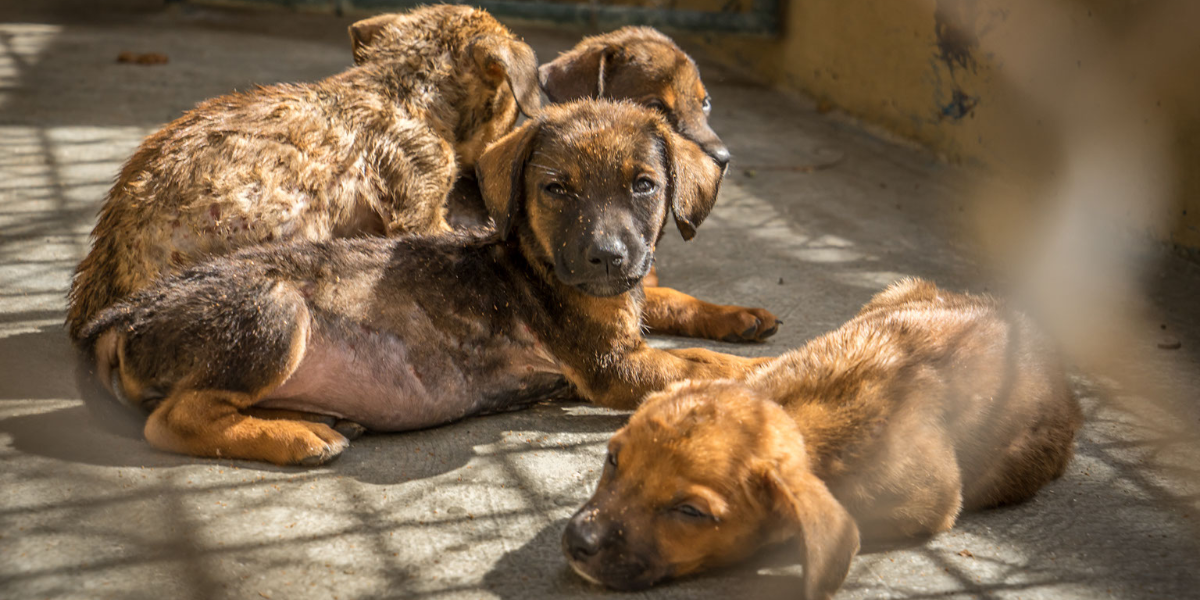Following on from last week’s story on the New England Times regarding Narrabri and Gunnedah’s growing stray dog issues, Councils and the RSPCA are desperately appealing to pet owners to desex their animals after an increase in dumped puppy litters.
“We have seen a number of litters of puppies dumped across our shire, some at our waste facilities, some inside our pound during the night, placed through the fence,” said Landon Brady, Manager Regulatory Compliance for Narrabri Shire Council.
“If you can’t afford the means to desex an animal, it is so important that when your animal is on heat or ready to breed, that you are locking it up.”
“Every pet owner should know their dog is coming onto heat every six months and they should take action.”
Narrabri Shire Council has spent the last two years, and will continue to search, for desexing funding for dogs to run a desexing program, however, there is no national program available at this time.
“We know desexing is expensive and not everyone can afford it, but locking your dog up in that week is what we need to stop these litters from occurring,” said Mr Brady.
“People need to be responsible for desexing their animals.”
An increase of stray dogs significantly increases the opportunity for unplanned litters, and with Council Rangers filling the pound to capacity within on or two patrols, the responsibility falls to pet owners.
To the community, the pound can be a death sentence for dogs, but new legislation eliminates euthanasia and focuses on the return to an owner or rehoming.
“We are so restricted by legislation in this space as there is this misconception on pounds that we just take dogs and put them down.” Said Mr Brady.
“But new laws brought in puts a complete ban on euthanasia, putting more pressure on us to rehome everything and to keep dogs and cats for an extended period of time.”
“For those dogs who are not returned to their owners, we rehome them, which is often more effective when we rehome them out of town.”
Narrabri and Gunnedah Council’s take pride in their efforts and successful rehoming rates for dogs.
“This Council recognises the value in rehoming and fostering companion animals and collaborates with a number of approved rehoming organisations in NSW and elsewhere,” said Wade Berryman, Manager Community Safety for Gunnedah Shire Council.
“With the exception of impounded dogs that are unsuitable for rehoming or are gravely ill or diseased, Council is proud that that greater than 95 per cent of dogs that come through the Gunnedah Shire AIF are rehomed.”
However, Gunnedah cannot accept surrendered animals, except with exceptional circumstances, due to limited animal accommodation.
“Council is committed to developing a new animal impound facility to meet current and future community expectations and animal welfare standards,” said Mr Berryman.
The RSPCA also reports they have seen a sharp increase in the number of people seeking to surrender animals, and their shelters state wide are at capacity. A spokesperson for RSPCA NSW says they have a waitlist for people wanting to surrender animals, and they also strongly encourage desexing.
“Desexing, as well as microchipping and vaccinating, your pet are core parts of responsible pet ownership and an effective strategy to prevent unwanted pregnancies.”
“The RSPCA receives over 125,000 animals every year and many of these unwanted animals are the result of unplanned breeding. Desexing not only helps to ensure fewer unwanted and homeless animals, but also research shows that desexed animals can live longer and healthier lives.”
“RSPCA NSW works with local volunteer branches and local councils to have a positive impact on animal and human health and welfare via Community Animal Welfare Schemes, also known as CAWS.”
Community Animal Welfare Scheme (CAWS) provide subsidised desexing, microchipping and vaccinations in some communities of NSW in collaboration with local councils, veterinary services, and RSPCA NSW Branches.
CAWS is a means-tested program to ensure those in the community who are most in need can access support. To ensure valuable veterinary medical resources are given to the people who require it the most, pet owners will need to be able to provide proof of a valid Centrelink benefits card to access these services.
“If there is not assistance with desexing currently available in your region, you can contact ‘The National Desexing Network’ via https://ndn.org.au/ and they might be able to assist.”
If a local council or veterinary service and are interested in finding out more about the RSPCA CAWS and other services and how to set one up in your area, please contact RSPCA NSW Community Outreach Officers for more information at outreach@rspcansw.org.au.
Like what you’re reading? Support New England Times by making a small contribution today and help us keep delivering local news paywall-free. Support now


